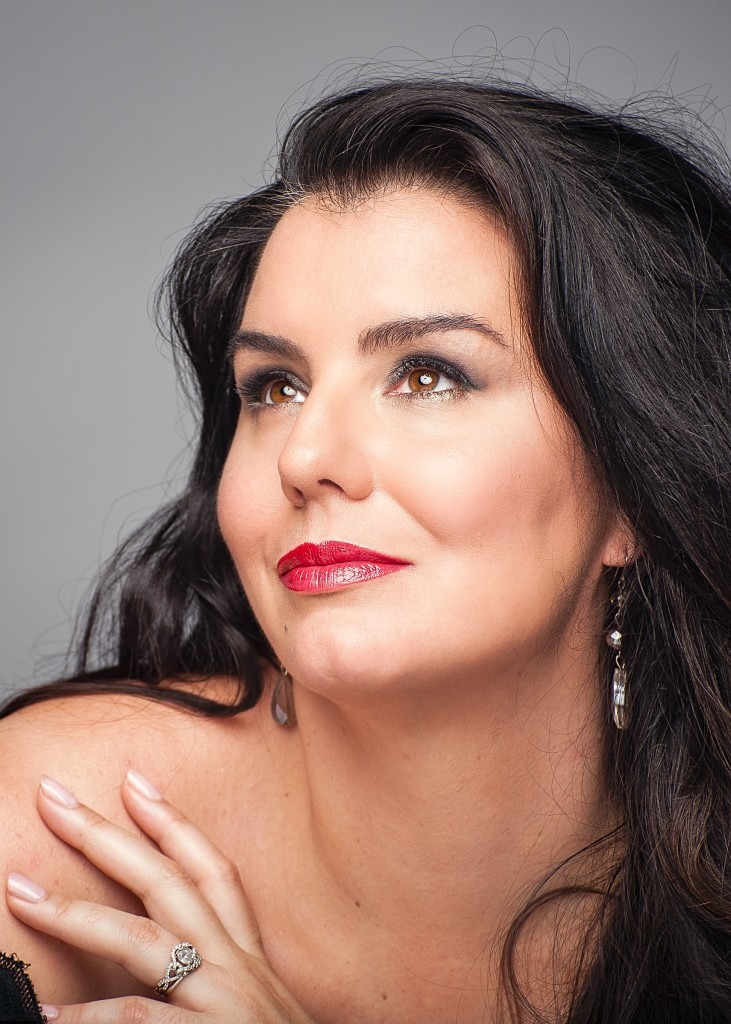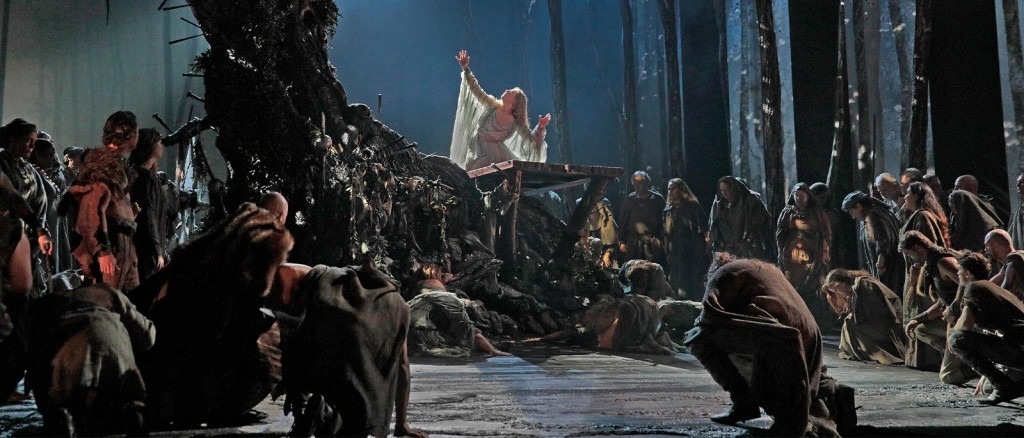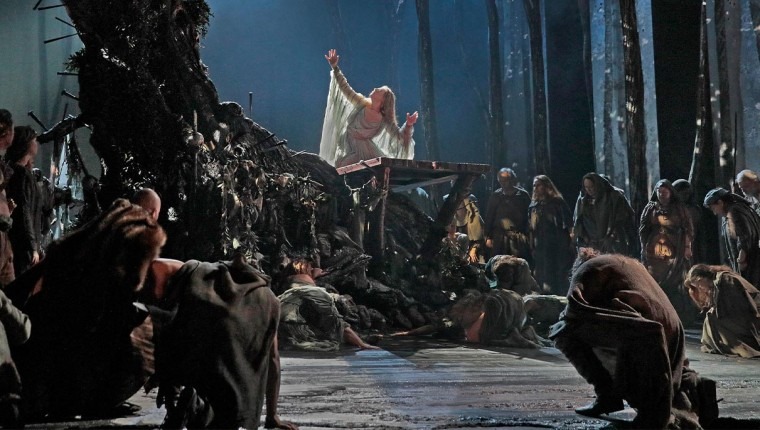By Kurt Loft
. . .
Opera Tampa Bets on
the Bel Canto of Bellini’s Norma
. . .
February 10 and 12
Straz Center, Tampa
Details here
. . .
Opera, like politics, is an exotic and irrational entertainment. Samuel Johnson lived too long ago to make a modern comparison, but his remark about opera’s absurdities captures why so many of us love this art form – and why too many do not.
Our normal lives are irrational enough, so plunging into a fable that unfolds in music and song offers a healthy distraction. One happens February 10-12, when Opera Tampa opens its new season with Vincenzo Bellini’s masterpiece, Norma.

Yes, Norma is hardly real, but it’s magically unreal, and carries enough linear beauty to seduce our ears from the first to last notes.
“Norma is unique because it’s in its own world, and there’s an epic quality about the story, the singing and the delivery,’’ says Jorge Parodi, who conducts members of The Florida Orchestra in two performances at the Straz Center in Tampa. “It was written at the height of Bellini’s creativity, so there’s an amazing combination of melodic line and dramatic pace.’’
Norma also is demanding, and the lead role ranks among opera’s proven gut busters. It requires power, a fluent lyricism, tenderness and violence, strong verbal declamation, intense emotional resources and a convincing stage presence. A cliché in the opera world is that a true embodiment of Norma can never exist because the singer wouldn’t last three hours.
. . .
from Norma during the pandemic
. . .
“I don’t think I’m saying this to toot my own horn, but it’s one of the most difficult roles to sing in the soprano repertoire,’’ says Rochelle Bard, who portrays the eponymous character. “Its range is low and floaty and angry and high and requires a marathon of stamina because of how much singing there is. But it’s also the most beautiful music.’’
Although nearly 200 years old, Norma is impervious to changes in fashion, and keeps something of a sacred status among operas and operagoers. For one thing, it strikes an ideal balance between the libretto – the written storyline – and Bellini’s music, melodies that are exquisitely sculpted around the poetry and the psychology of the characters.
Secondly, Bellini was the undisputed master of bel canto, the “beautiful singing’’ style of the Romantic period that embraces a lyrically smooth, seamless vocal expression. Bellini used this to great effect in his operas, and said the emotive power of song “must make one weep, shudder, die.’’
Of course, it doesn’t hurt that this lyric tragedy contains one of the gems of all arias, Casta Diva (“Pure Goddess’’), often sung as a stand-alone at recitals and stadium concerts. The aria helped make Maria Callas a household name, and after her 1956 Metropolitan Opera debut in Norma, she sang the role more than 90 times.
. . .
“I have a particular fondness for Norma because of Callas and the first time I heard her sing Casta Diva,’’ says Judith Lisi, who retired last year as president of the Straz Center, and who founded Opera Tampa in 1996. “I just was overwhelmed and felt like I was being transported to an ethereal state of being. I still do whenever I hear it.’’
Historic performances of Norma, or any opera, are important, adds Parodi, but a new production must speak in its own voice.
“It’s hard to beat Callas in anything she’s done,’’ he admits. “Fortunately, we don’t think about that in our Norma – we just try to do our best and be true to the score and make people happy.’’
For all its emphasis on the lead, the opera depends on strong acting and singing by the ensemble, which is essential to the strengths and subtleties of the drama.
“Its success as a show depends on the entire cast,’’ says Bard. “And when you have a cast of singers who are great colleagues and actors, like we have with Opera Tampa, the height of the show increases twofold.’’
. . .
The “show’’ is set in a sacred forest in Gaul after the Roman occupation, about 50 B.C.E. It involves a secret love affair between Norma, the high priestess of the Druids, and Pollione, a Roman official. The Druid people are loyal to Norma, and seek her counsel about revolting against the invaders.
In a bit of intrigue, Norma advises against it, but doesn’t reveal to her people that she’s had two children with Pollione – although no one notices her pregnancies (so much for operatic realism). Pollione then has an affair with another woman, Adalgisa – and when Norma finds out she threatens to kill her own children rather than see them raised by an unfaithful father. Her anger in lashing out at him is an unforgettable scene, and stands in sharp contrast to her plea for peace in Casta Diva.
Spoiler alert: A woman with a conscience, Norma admits to the Druids that she broke her sacred chastity vows and conspired with the enemy. Although viewed by some as a victim, she nonetheless must pay the price with her life, and in the opera’s climax, Pollione the adulterer joins her at the pyre.
“She thinks aloud, and I love her for that reason,’’ Bard says. “She’s a flawed person in a position of power, but she’s very strong and she takes responsibility in the end.
“So it’s very much like real life – and it’s a heart breaker.’’
. . .
. . .
Opera Tampa’s Norma
February 10 at 8 pm
and February 12 at 2 pm
Straz Center for the Performing Arts
1010 N. MacInnes Place, downtown Tampa
strazcenter.org
813-229-7827
. . .
If you miss the show, The Metropolitan Opera is sharing
a live audio broadcast of Norma on March 25.






